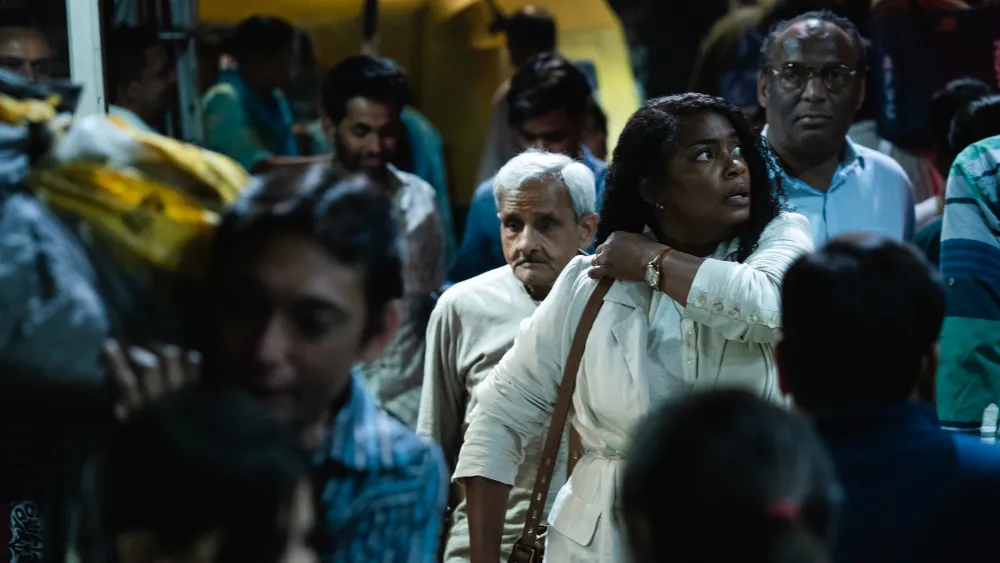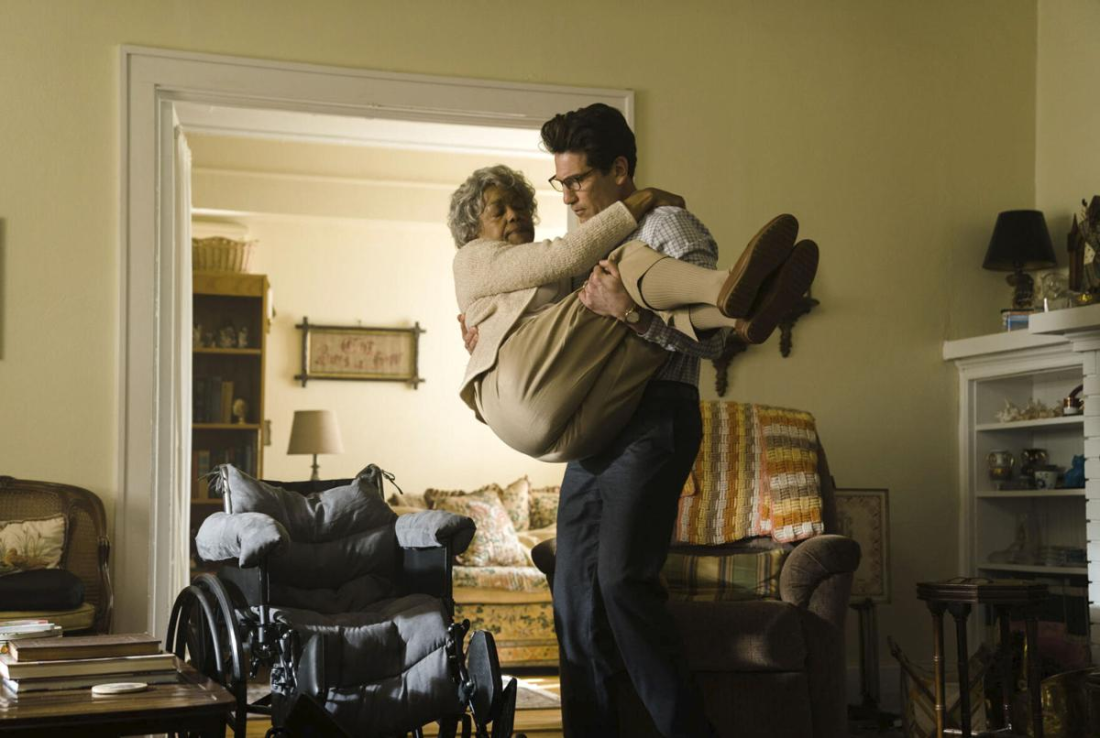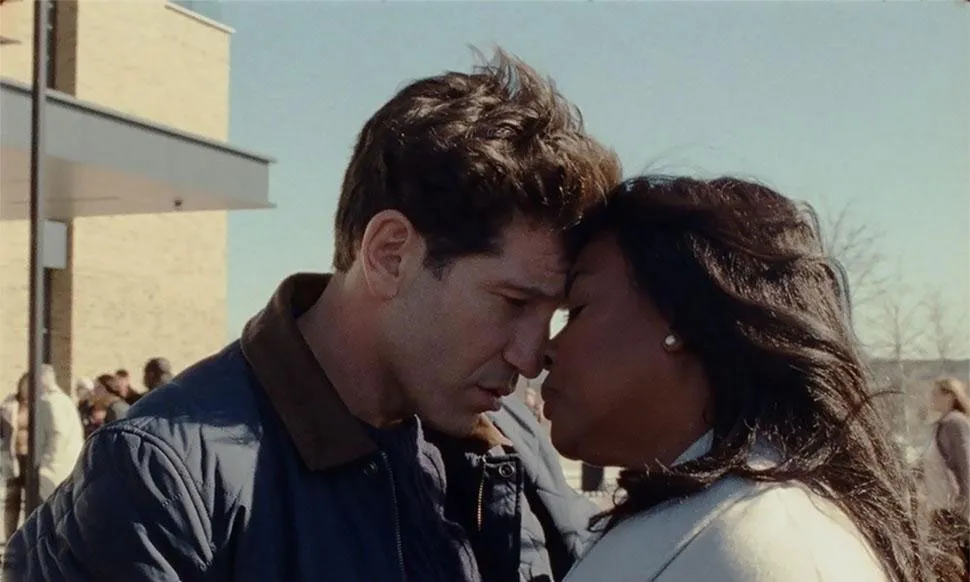Origin (2023) is an American drama film from writer-director Ava DuVernay. Based on the 2020 nonfiction novel Caste by Isabel Wilkerson, it stars Aunjanue Ellis-Taylor as Wilkerson herself, following the life of the author as she writes the book while experiencing personal tragedy. The film debuted at last year’s Venice Film Festival and was released theatrically by Neon.

I was intrigued by this project from the moment I heard it announced as part of the Venice lineup. Ava DuVernay has been making powerful, provocative films and television shows for many years, including Selma, 13th and When They See Us. While her work is sometimes hard to watch for its brutal depiction of injustice and violence, they always feel important and leaves you with lingering mental images that haunt you long after viewing. The same is true of Origin, which follows author Isabel Wilkerson’s attempt to draw a link between various historical injustices around the globe, including American slavery, the Jewish Holocaust, and the Indian caste system. While I found the film to be a bit clumsy in its attempts to inject emotional resonance to the story via Wilkerson’s personal life, it nonetheless raises important questions about human nature that leaves you thinking long after.
The film begins with Isabel’s personal life, caring for her ailing elderly mother alongside her loving husband Brett. Tragedy quickly strikes as Isabel prepares to begin working on her next novel; her mother passes away in hospice care while Brett succumbs to a brain tumor not long after. Worse yet, her close cousin and confidant also begins to fade away, leaving her with few lifelines to rely upon in such a difficult period of loss and mourning. This only deepens her drive to finish the book, as political tensions in the United States related to racial police shootings and the 2016 presidential election only make her research that much more relevant to society. These are the moments that work best for me in Isabel’s personal story: when reality comes crashing down upon her and she is confronted head-on with the hate and prejudice still lingering in American society today.

That being said, I did take some issue with the film’s over-reliance on Isabel’s personal tragedies to mine emotions from the audience. The build-up to each of her three losses is fairly obvious and predictable, and while it is definitely sad what happened to her, it felt entirely disconnected from her research and what the book was actually about. Is her husband’s freak accident really that connected to the caste systems around the world, so much so that we get a prolonged sequence of mourning in the wake of his passing? The film has a bit of an identity issue in that regard, and it felt like two halves of two different films stitched together. Neither was egregiously bad or anything, but they didn’t always feel like they fit together.
Where the film really shines is when it sticks closely to the source material and we hear stories about past injustices and the people who stood up against it. We learn about August and Irma, a German man and Jewish woman separated by the Holocaust; the Davis and Gardner families, a white and a black couple who worked undercover together to expose racism in the Jim Crow South; and Dr. Ambedkar, an Indian “unspeakable” who overcame adversity to earn his PhD and champion Dalit rights in his home country. Creating personal connections to these vast, unfathomable tragedies help us understand the human component of the injustice, and that is a much more effective way to create emotional resonance that I wish had been done more often. Even a scene as simple as a black boy excluded from a pool party with his white Little League teammates creates a powerful mental image in the audience’s mind that clearly highlights how unfair these caste systems are and why we should actively work to abolish them from our society. In that sense, the film is a call to action without feeling preachy in its messaging – the images speak clearly for themselves.

I also liked the way Isabel explains her thesis to her colleagues and friends, tying all these disparate tragedies together into one cohesive unit. She initially faces pushback from both her publishers and her loved ones, who fail to see how racism in America is in any way related to the Holocaust or caste systems abroad. But she manages to distill her arguments to their simplest, most understandable form so that both they (and we the audience) can see where she’s coming from. It’s an especially important message today as far-right ideologies threaten our nation once more and people are increasingly drawn to philosophies that seek to tear people apart rather than bring them together. At times the film feels a bit didactic in that regard, and I wondered if the film would have worked better as a documentary than a feature film. But I don’t think the film would have found as wide of an audience as a doc, so I’m okay with the decision, even if it led to some clumsiness as explained above.
Ava DuVernay was met with some mild controversy lately when she made a comment in an interview about not finding the visual work of filmmaking as important as its messaging. Besides being wildly taken out of context, I think most people also fail to recognize just how great DuVernay is as a visual director. All of her work excels at crafting images that linger in the brain – simple but powerful shots that perfectly encapsulates her messages without feeling preachy. Watching a little black boy float in a pool by himself while the white townspeople silently watch on is the kind of gut-punch moment that makes her work so memorable and resonant. This film also wouldn’t have worked nearly as well without Aunjanue Ellis-Taylor’s excellent central performance; she has to walk a delicate tight-rope of stoic academic holding back serious personal trauma that threatens to tear her apart emotionally. I was moved by her performance and her journey, and there was never a false note as she travels the world in search of the truth.

Conclusion
Not all of the pieces of Origin fit together super neatly, and it can feel emotionally manipulative at times as it explores Isabel’s personal life to a borderline excessive degree. But the whole is much more than the sum of its parts, as I was left deeply moved by the interwoven stories of injustice and humanity that each speaks to the human condition. Ava DuVernay continues to be one of the freshest voices in cinema today, telling resonant and impactful stories that everyone can take something away from. Don’t miss this flawed but important film before it leaves theaters for good!
VERDICT: B+
All image rights belong to Neon.
-Austin Daniel